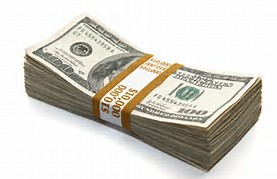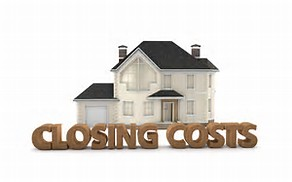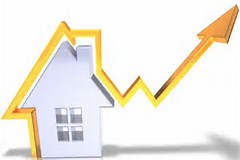Are you Financially Ready to Buy a Home?
Are you financially ready to buy a home? It may be a good idea to sit down and write a draft household budget. Get a sense of your current monthly expenses. A licensed mortgage broker or bank can also help you determine if you’re financially ready, but there are things you can think about on your own too:
Consider your down payment: A down payment is the part of the purchase price the buyer pays in cash rather than financing with a mortgage. Buyers typically need a minimum 5% of the purchase price as a down payment. You cannot borrow down payment funds, though a relative can provide you with a gift of a down payment. In that case, you’ll need a letter from your relative (“gift letter”) verifying the down payment funds are a gift and don’t need to be repaid. Other than any such gift funds, you must prove to the financial institution or lender that your down payment is from your own funds. 
If your down payment will be less than 20% of the purchase price, you will need a high ratio mortgage and it has to be your primary residence (i.e. you can’t rent it out). Lenders require borrowers to obtain mortgage insurance for high ratio mortgage, since they can be riskier for financial institutions. The insurance will protect your lender in the event you default on the mortgage. If you need a high ratio mortgage, you need to include the cost of the mortgage insurance in the total mortgage amount. Your mortgage insurance premium will vary depending on the size of your down payment relative to the price of the property, but ranges from under 1% of the purchase price to more than 3%. A real estate professional, mortgage broker, or lender can calculate your exact premium, and some websites have calculators available for doing the math yourself. If your down payment is 20% of the purchase price or more, you do not require mortgage insurance.
Ensure you have deposit funds: You need to provide a deposit with your offer to purchase. Your real estate professional can advise you on the deposit amount, and your deposit funds are typically part of your down payment.
Budget for closing costs: Closing costs are separate from your deposit and down payment, and are typically due on possession date, which is the date when the real estate transaction is complete and the property is yours. Closing costs include lawyer fees, property tax adjustments, title insurance (if any), etc. It is a good idea to budget a couple thousand dollars on top of the purchase price as closing costs.
 Remember that being approved for a mortgage of a certain amount doesn’t mean you have to spend that much. In fact, many experts believe you shouldn’t max out on the value of your home. You want to leave enough room in your budget in case you have unplanned expenses come up, interest rates rise in the future, or if there’s going to be a period of time when you’re off of work (sickness, parental leave, etc.), you’ll still be able to make your mortgage payments.
Remember that being approved for a mortgage of a certain amount doesn’t mean you have to spend that much. In fact, many experts believe you shouldn’t max out on the value of your home. You want to leave enough room in your budget in case you have unplanned expenses come up, interest rates rise in the future, or if there’s going to be a period of time when you’re off of work (sickness, parental leave, etc.), you’ll still be able to make your mortgage payments.
Get a sense of market conditions: News articles often refer to real estate market conditions. You may hear the terms buyer’s market, seller’s market, or balanced market. But what do those mean?
- buyer’s market – where property supply is strong and buyer demand is weak. In a buyer’s market, you’re more likely to hear that buyers think they received a good deal.
- seller’s market – where buyer demand is strong and property supply is weak. A buyer in a seller’s market may worry they’re paying too much for a property because they’re competing with other buyers for a limited supply of properties.
- balanced market – where demand from buyers is
 keeping pace with the supply of properties for sale.
keeping pace with the supply of properties for sale.
Market conditions affect home prices. Sellers want to get as much for their property as they can and buyers want to pay as little as they can; the market conditions will dictate who has a stronger negotiating position.


